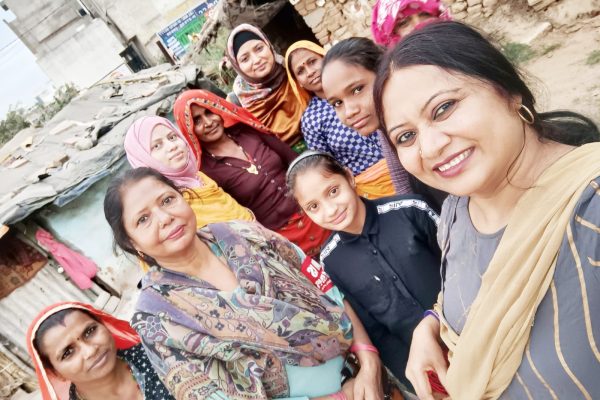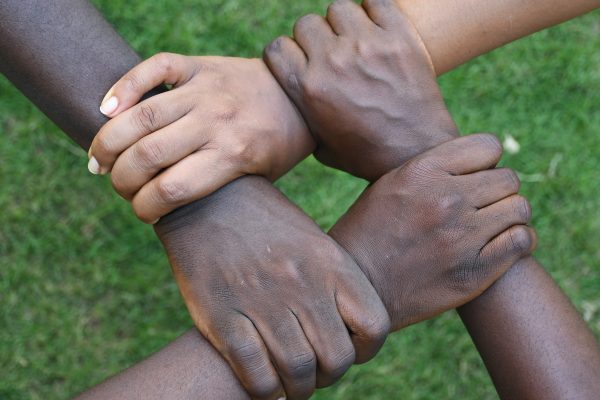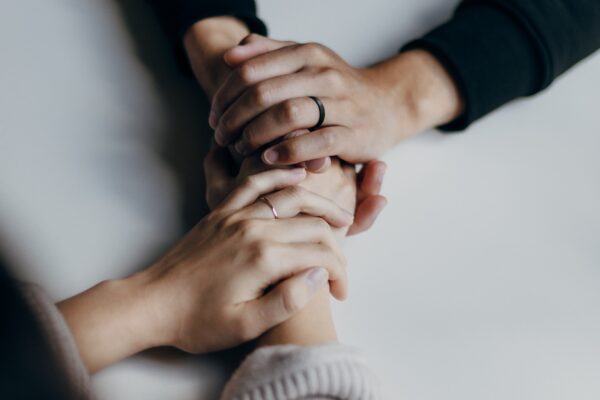We have been taught from a young age that we should strive for independence. Our society celebrates and elevates stories of personal triumph, where the protagonist defies all odds to emerge victorious by virtue of their own determination and talent. But the reality is that we can do nothing alone.
Tom Shakespeare is a sociologist and Professor of Disability Research at the London School of Hygiene and Tropical Medicine. Shakespeare challenges the notion of independence. He says, “I think human beings are naturally interdependent.”
What is interdependence?
Interdependence is the notion that we are reliant on one another not only for survival but in order to live fulfilling and meaningful lives. When we think about seemingly mundane aspects of our everyday lives, we often neglect to acknowledge the invisible labour that makes everything possible. You may commute to work every morning. On the way, you stop in a shop where someone makes you a coffee. You board a bus driven by a bus driver on a road that construction workers built in a city that architects designed. We are, like any other society, reliant on one another for virtually everything.
To recognise this is to understand that we have a responsibility to take care of one another.
We all have vulnerabilities, lacks, and limitations that leave us in need of others’ help. We experience this especially in times of crisis when people are facing conflict, natural disaster, illness, and a number of other difficulties. Many of us rush to help by reaching into our pockets, donating things like clothes and supplies, and raising awareness on social media.
August 19th marked World Humanitarian Day. To be a humanitarian is to recognise that we are an interdependent people, and can all do our part to address one another’s needs. While it is important for us to embrace humanitarianism in times of crisis, it is equally important and impactful to do so in our everyday interactions.
We can look to the example of Hussain Ibn Ali, who through his actions 1400 years ago, teaches us how to be a humanitarian in both small and large ways. Throughout his life, he was known to be exceptionally kind and charitable. In one instance, Hussain was riding his horse in the streets of Medina when he encountered a group of beggars, who, in the spirit of kindness, invited Hussain to join them in eating the food they had collected together from that day. Humbled, Hussain dismounted from his horse and sat with them. He expressed his gratitude for their generous offer by inviting them all to share a meal with him in his own home.
This anecdote teaches us how one generous act can inspire another. You don’t have to be a millionaire to be charitable. When we give within our own capacities, we open doors for mutual kindness and compassion to be expressed.
To be a humanitarian is to care about one another enough to recognise our privileges and give from our time, skills, talent, energy, or money to improve the lives of others.
Who is Hussain has launched the #WeAreHussain campaign in an effort to embody Hussain Ibn Ali’s humanitarian spirit in 2023. Our volunteers are committed to ensuring the well-being and dignity of people in communities all around the world. Here are some of the initiatives our teams have been working on as part of #WeAreHussain:
Our team in Birmingham holds weekly food drives in the City Centre. Each week, they provide approximately 175 meals for local families in need. Food drives like this are being organised by our volunteers all around the world, from Birmingham to Buenos Aires. On June 30th, our volunteers in Buenos Aires visited Los Chiquitos Con Amor dining room to deliver the food items they had collected as part of their food drive initiative.
In Mbeya, our team is responding to the need for medical treatment for cataracts in their community. The team has been raising money to provide life-changing medical treatment. As part of their fourth round of this project in July, they sponsored the surgeries of more than 30 patients. In total, the team has managed to restore the eyesight of more than 120 people who couldn’t afford the procedure otherwise.
In Jaipur, our team visited a public park and recruited the help of local children and a group of senior citizens to plant saplings. Together, they beautified their community and learned about the importance of trees. The plantation drive aimed to inspire their local community to preserve and protect the environment.
Our volunteers inspire us to take action in unique ways to take care of our communities. You can participate in our #WeAreHussain campaign and celebrate World Humanitarian Day with us by choosing to act generously and compassionately in your own life.




